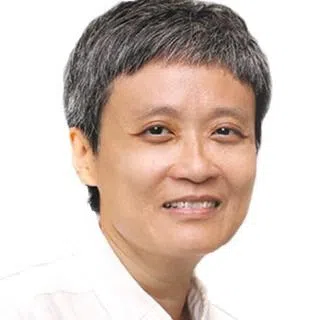China needs more than loose monetary policy for economic recovery
Lianhe Zaobao Beijing correspondent Sim Tze Wei notes that a loose monetary policy alone is not enough to boost investor confidence and bring the Chinese economy back on the path to recovery.
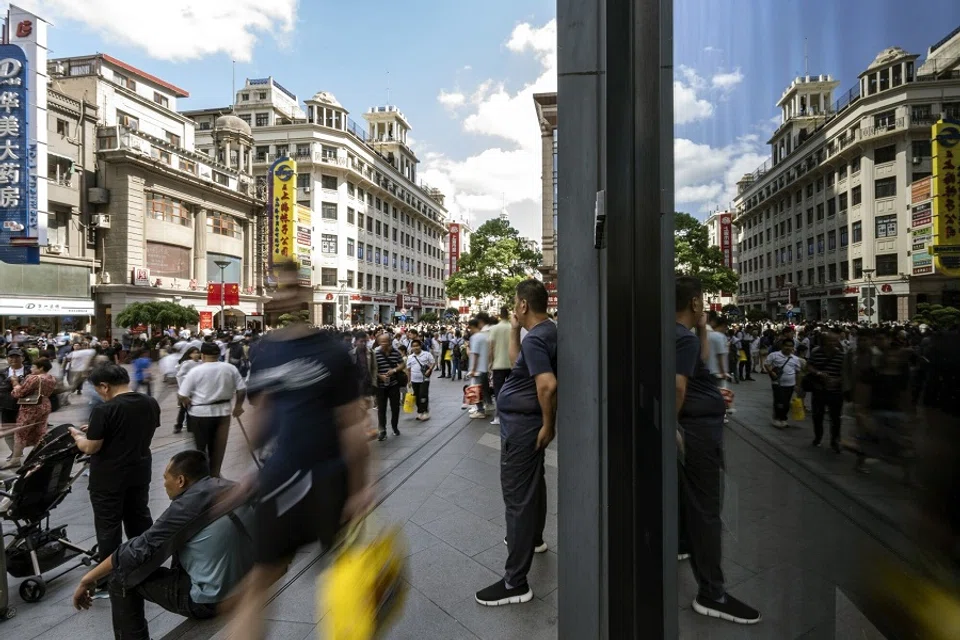
Following the surge in the Chinese stock market after the monetary policy was loosened on September 24, a wave of online quips has emerged, including this creative adaptation of Song dynasty poet Su Shi’s Shuidiao Getou (水调歌头).
“I want to cash out, but I’m afraid I’ll miss out if the market keeps rebounding. Rather than have my savings be eaten away by negative interest, I might as well stay in the fight. The moon waxes and wanes, stocks rise and fall; it is impossible to come out totally unscathed but I hope I can continue to make money at the end of it all!”
There is a Chinese saying: there are geniuses among the average folk — free of any restraints, the creativity of the Chinese public can most certainly come up with astonishing works.
Expecting looser fiscal policies
Both stock market gains and trading volumes had set record highs, with a notable surge in new accounts, mainly driven by those born after 1985 and 1990. Many investors are optimistic about reaping a fortune in this bull market. A friend of mine shared that his friend raked in a few hundred thousand RMB in just three days, even mortgaging his house to fund this risky expedition, refusing to pull out.
Earning a quick buck also means more impetus to spend, especially during China’s long National Day holiday period. Whether the upbeat stock market can spur consumption and bring about “revenge spending” — which has not surfaced even well after the pandemic — will be evident in the official statistics published after the holidays.
Just before the National Day holidays, China’s three major financial regulators introduced accommodative policies that exceeded market expectations, which has indeed boosted confidence in the capital markets.
The market is now anticipating the Chinese government’s announcement of expansionary fiscal policies aimed at directly stimulating corporate investment and consumer spending through increased official expenditures.
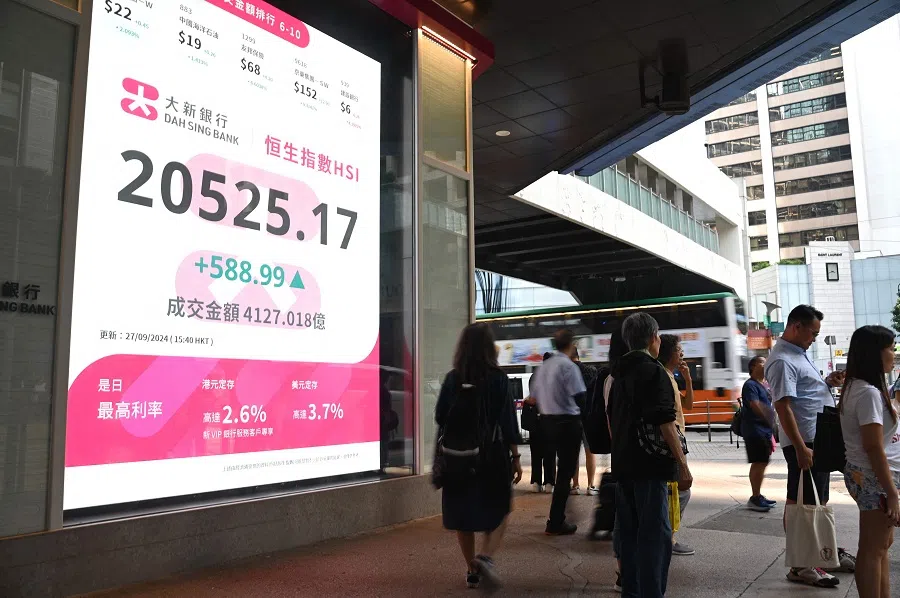
With the mainland stock market closed for the holidays, the Hong Kong stock market continued to surge on 2 October with the Hang Seng Index rising by 6.2%. Chinese brokerage stocks and real estate stocks saw widespread gains, with Citic Securities and Ronshine China increasing by over 39% and 397% respectively.
However, a loose monetary policy alone cannot sustain a strong rebound in the real economy. The market is now anticipating the Chinese government’s announcement of expansionary fiscal policies aimed at directly stimulating corporate investment and consumer spending through increased official expenditures.
There are high expectations for the fiscal policy due to the clear political signals following the Chinese Communist Party’s Politburo meeting on 26 September. It stressed the need to “increase the intensity of countercyclical adjustment in fiscal and monetary policies, ensuring necessary fiscal expenditures”, as well as the desire to “strive to fulfil the annual economic and social development goals and tasks”.
In order to achieve policy objectives, the government formulates macroeconomic policies at the top level to regulate macroeconomic operations using policy tools. Meanwhile, enterprises, consumers and local officials are the important micro-level groups driving economic development. When these groups become passive, pessimistic economic expectations can become a self-fulfilling prophecy. The Chinese economy is currently facing such a predicament.
Private sector’s need for clear direction and sense of security
Enterprises, especially private enterprises, are in fact a key source of vitality for China’s economy.
According to an article published on China’s National Development and Reform Commission website on 30 August, the private economy contributes to more than 60% of GDP, and private enterprises account for more than 90% of all business entities and absorb more than 80% of urban labour. It also contributes to 70% of its innovative capacity and more than 50% of the national tax revenue. Of the Fortune 500 Global companies, Chinese private enterprises have gone from only five making the list in 2012 to 30 in 2023.
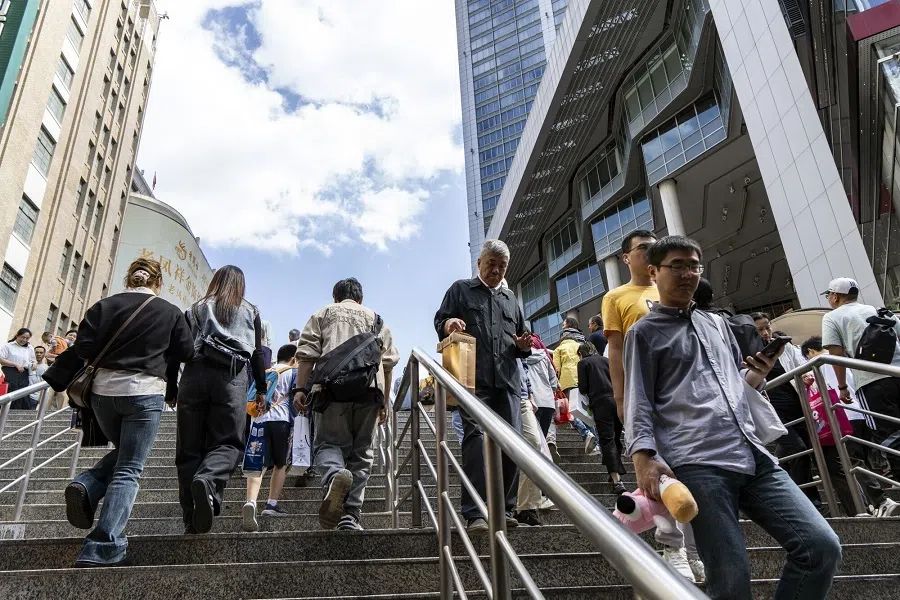
Private investment, which contributes greatly to China’s economy, employment and tax revenues, saw eight consecutive months of negative year-on-year growth from May 2023 to the end of the year.
An article published by Caixin in July pointed out that since 2024, while private investment has ended its year-on-year negative growth, the growth rate for the first five months reached only 0.1%, lower than the 7.1% growth rate for state-owned and state-controlled investments.
The confidence of China’s private sector has been low in recent years, not only suffering a heavy blow during the pandemic but also facing discussions involving the “exit theory of private enterprises” in 2018. Some even proposed the idea of a “new public-private partnership”, leaving private entrepreneurs unsettled.
Zhou Tianyong, director of the National Economic Engineering Laboratory at the Dongbei University of Finance and Economics, has written extensively about the unfair treatment of private enterprises in China.
Some Western media reported that on 25 September Zhou had posted on his WeChat, calling for an urgent ban on local governments at all levels from using local disciplinary inspection committees to detain private entrepreneurs and release them after collecting money in order to generate local fiscal revenue.
He asserted that this practice must be stopped to “prevent it from spreading and causing a national economic disaster”. This article has since been blocked on mainland Chinese websites and social media.
When the rights of private entrepreneurs are fully protected, they will no longer need to operate in a repressive atmosphere filled with anxiety, and investment confidence will naturally rebound.

Zhou then pointed out in another article on 30 September that the premise of policy stimulus is to give private enterprises and foreign investment a clear direction and sense of security.
He stressed that if issues related to direction and sense of security are unclear, uncertain and unsettling, private enterprises and foreign investment will remain sceptical about policies aimed at promoting the development of private enterprises and attracting foreign investment, leading them to adopt a wait-and-see approach or simply “lie flat”. They will instead seek investment opportunities and secure places to park their assets in countries and regions where asset security can be ensured.
Relationship between government and market
In other words, some economic issues stem from politics. In addition to loose monetary and fiscal policies, a relaxed atmosphere that allows private enterprises to operate with peace of mind is equally important. When the rights of private entrepreneurs are fully protected, they will no longer need to operate in a repressive atmosphere filled with anxiety, and investment confidence will naturally rebound.
This also involves teasing out the relationship between the government and the market. The government’s decision on which sectors to tighten regulations in order to correct market distortions, and on which sectors to relax to stimulate market vitality, will determine the overall performance of the economy. Ultimately, this will test the ability and speed in which authorities adjust and enhance their decision-making.
In addition to focusing on when a loose fiscal policy will be launched, the market and private enterprises will also pay attention to whether policies that truly boost the confidence of private enterprises will be implemented.
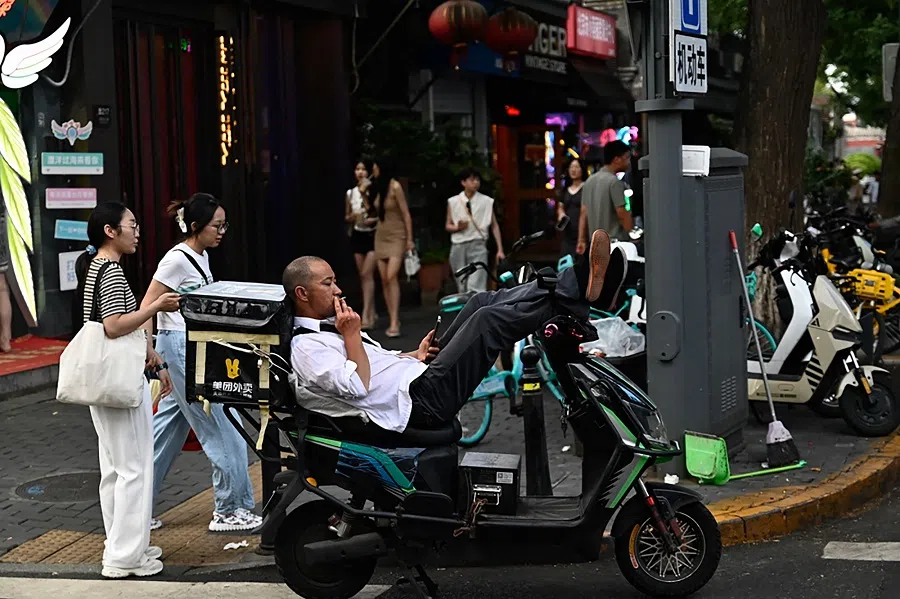
On 27 September, Zheng Shanjie, chair of the National Development and Reform Commission, sent positive signals to private enterprises when he met with representatives from Youngor Group, Meituan, Zhongtian Technology, Neusoft Corporation and Ningxia Baofeng Energy Group. He asserted that private enterprises and private entrepreneurs “are one of our own”, and vowed to spare no effort in helping them tide over the difficulties.
China’s unexpected announcement of a loose monetary policy and a slew of significant stimulus measures has reminded many of the abrupt shift away from the zero-Covid policy. Regardless of the pace of policy adjustments, it is better to arrive late than not at all.
In addition to focusing on when a loose fiscal policy will be launched, the market and private enterprises will also pay attention to whether policies that truly boost the confidence of private enterprises will be implemented.
This article was first published in Lianhe Zaobao as “需要宽松的不仅是中国货币政策”.
